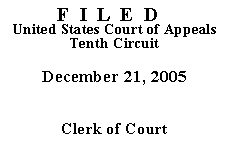

| UNITED STATES of AMERICA,
v.
TERRY L. CORBER |
No. 05-3190
(D.C. No. 04-CR-40003-01-SAC) (D. Kan.) |
I. STANDARD OF REVIEW
"A defendant is entitled to an entrapment instruction whenever there is sufficient evidence from which a reasonable jury could find entrapment." United States v. Scull, 321 F.3d 1270, 1274 (10th Cir. 2003) (quotation omitted). Because Corber raised entrapment as a defense at trial and requested the trial court instruct on that defense, we review de novo the district court determination that there was insufficient evidence of entrapment in this case to instruct the jury on that defense. See id. "For the purpose of determining the sufficiency of the evidence to raise the jury issue, the testimony most favorable to the defendant should be accepted." Id. at 1275 (quotation omitted).
II. ANALYSIS
"To obtain an entrapment instruction, a defendant must establish two elements: first, government agents must have induced the defendant to commit the offense; and second, the defendant must not have been predisposed to commit the offense, given the opportunity." United States v. Nguyen, 413 F.3d 1170, 1178 (10th Cir. 2005) (quotation, emphasis omitted), petition for cert. filed, (U.S. Nov. 22, 2005) (No. 05-7929). Because in this case there was insufficient evidence that the Government induced Corber to commit the offense to require submitting that issue to the jury, we need not address whether Corber was predisposed to commit the crime.
Inducement is government conduct which creates a substantial risk that an undisposed person or otherwise law-abiding citizen would commit the offense. Simple evidence that a government agent solicited, requested, or approached the defendant to engage in criminal conduct, standing alone, is insufficient to constitute inducement. Inducement also will not be shown by evidence that the government agent initiated the contact with the defendant or proposed the crime.
Id. (citation, quotation, alteration omitted).
In this case, viewing the evidence in the light most favorable to Corber, see Scull, 321 F.3d at 1275, the evidence at trial established the following: In February 2003, Corber was living with his grandmother, his father Alvin and his uncle George. Corber's Uncle Bobby would also frequently be at the home.
On February 13, 2003, Edward Radford was released from jail. Radford and his wife Laura were paid government informants. After he got out of prison, Radford began to call the Corber household, seeking to buy drugs. Radford would purchase drugs from both Bobby and Alvin Corber.
Although Radford usually called the Corber household seeking to talk to Bobby Corber, Radford also spoke to Terry Corber "a few times" between February 13 and 20. On those occasions, Radford sought to buy crack or methamphetamine from Terry Corber, but Corber told Radford "that I couldn't."
After 8:00 p.m. on February 20, 2003, Radford called Corber again seeking to buy crack. Although Corber did not have any crack, Corber told Radford that Corber would bring some over to Radford's apartment.(2) Corber then told his friend, Larry White, that Radford wanted to buy drugs. White had drugs to sell Radford, but White did not know where the Radfords lived. So Corber rode with White to the Radfords' apartment. When Corber and White arrived, within an hour of Edward Radford's call, White asked Corber to take the crack up to the Radfords' apartment and make the sale. In exchange for Corber's conducting the transaction, White gave Corber some methamphetamine. White gave Corber the crack and then waited in the car while Corber went inside the Radfords' apartment and sold Edward Radford the crack, as well as Corber's methamphetamine. According to Corber, White had already prearranged this sale with Radford. At the end of his conversation with Radford, Corber told Radford "there's more where that came from."
Radford's calls to Corber soliciting crack were insufficient, alone, to establish that the Government induced Corber to sell crack to Radford. See Nguyen, 413 F.3d at 1178; Scull, 321 F.3d at 1275. Further, Corber's own testimony established that he agreed to conduct the drug sale in exchange for White's giving Corber methamphetamine. There was, then, no evidence at trial suggesting that the Government induced Corber to sell crack cocaine. The trial court, therefore, did not err in refusing to instruct the jury on Corber's entrapment defense.
For these reasons, we AFFIRM Corber's conviction.
ENTERED FOR THE COURT
David M. Ebel
Circuit Judge
*.After examining the briefs and appellate record, this panel has determined unanimously to grant the parties' request for a decision on the briefs without oral argument. See Fed. R. App. P. 34(f) and 10th Cir. R. 34.1(G). The case is therefore ordered submitted without oral argument. This Order and Judgment is not binding precedent, except under the doctrines of law of the case, res judicata, and collateral estoppel. The court generally disfavors the citation of orders and judgments; nevertheless, an order and judgment may be cited under the terms and conditions of 10th Cir. R. 36.3.
1. 21 U.S.C. § 841(a)(1) makes it "unlawful for any person knowingly or intentionally . . . to manufacture, distribute, or dispense, or possess with the intent to dispense a controlled substance." And § 841(b)(1)(B) provides for a sentence of not less than five or more than forty years for such an offense involving five grams or more of cocaine base.
2. Corber later testified, however, that he instead told Radford "no" when Radford asked to buy crack.